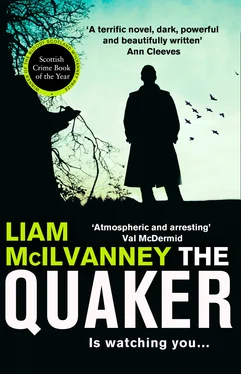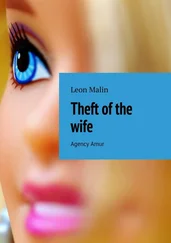1 ...6 7 8 10 11 12 ...17 McCormack found a fresh T-shirt in the dresser. He filled a glass of water at the kitchen sink and then stood at the living-room window. Some folk thought being a policeman was dangerous work. The choice in Balla was the plant at Kinlochleven or the Balla quarries. McCormack’s grandfather – his seanair – worked in the slate quarries all his days. It was hard, dirty work – not as hazardous as the aluminium plant, and not a patch on the mines – but it was dangerous too. Dynamited rock could shoot out crowbars like javelins if they were carelessly left in. A guy standing next to McCormack’s seanair was killed that way.
The last quarry closed in 1955 but McCormack had already left for the city. Coming south to join the City of Glasgow Police was like coming up for air. McCormack left the Highlands to escape the dust and smog and grime, the sound of the hooter four times a day. Glasgow was the Dear Green Place, a city of parks and boating ponds, the Botanic Gardens, the bowling greens of Kelvingrove.
It was a city he knew fairly well, his mother’s city and – even more – his granny’s city. Granny Beag had grown up in Ballachulish, but she married a lowlander called Thomas Beggs, a welder in the shipyards, and flitted down to Glasgow, where McCormack’s mother grew up, meeting McCormack’s father at a dance at the Highlanders’ Institute. Granny Beag was a short woman, not much over five feet tall, though her sharp tongue and guardsman’s carriage gave her the presence her stature belied. When McCormack was young he misheard ‘Granny Beggs’ as ‘Granny Beag’ – that is, ‘little granny’ – and the name stuck. For Granny Beag, Glasgow was like the Highlands without the kirk ministers and the stink of fish. You could meet people from all over the Gaeltacht, not just from your own village, and you could hear the language spoken whenever you fancied, in the Highlanders’ Institute or the Park Bar. And you needn’t see a minister or a kirk elder from one year’s end to the next unless you sought them out.
When her daughter married a Ballachulish man and moved back to the village, Granny Beag was dismayed. The real Highlands – or as much as you wanted of them – were right here in Glasgow, in the tenements of Partick and Maryhill. She took her revenge by encouraging her grandson to come down to the city whenever he liked. McCormack spent whole summers at the flat in Caird Drive. The old woman was lonely – the welder had died shortly after the war – and it pleased her to have a young man in the house, a boy she could pamper and feed. She taught him Gaelic songs and told him stories of the village in the days of her youth and showed him off to the shopkeepers on Dumbarton Road. When his mother remarried and moved down to London with her new husband, McCormack spent more and more time at the flat.
Towards the end, when Granny Beag was dying of lung cancer, she told McCormack she was leaving the flat to him. Her daughter was well provided for, thanks to her new husband, and she wanted the place to go to McCormack. ‘It’ll be a base for you when you’re down in the city, and maybe you’ll end up working here. And it’ll be a place,’ she said, avoiding his eye, ‘a place where you can bring people back.’ People , she said, as if she’d known all along, as if she’d worked it out.
McCormack moved in straight away. When he finished training and started as a constable in C Div, he bussed it to work from the Caird Drive flat. He changed nothing, kept all of Granny Beag’s furniture, her old-fashioned copper pots and the cream-coloured crockery with the green trim. He drank in the Park Bar, went to concerts at the Institute, played shinty for Glasgow Mid-Argyll. He was becoming what she’d wanted him to be all along, the choicest specimen of Caledonian manhood, an urban Highlander.
Now, as he stood looking out at the city, he wondered if he’d come far enough. Maybe he should have followed his mother to London, a real city, a world city, where nobody bothered if you were a teuchter or a taig or anything else. Maybe there was still time. Maybe if he did a good job here he could think about getting away, apply to the Met, get off down to London or further afield. Half the population of Glasgow seemed to be clearing out; another Highlander more or less would never be missed. He rinsed his glass under the tap, turned it upside down on the draining board and padded back to bed.
The train rocked to a halt. Alex Paton looked up from his paper and wiped a little porthole in the window’s condensation. There was an advert painted on a gable at the far side of the platform – UNCLE JOE’S MINT BALLS KEEP YOU ALL AGLOW – and he knew at once where they were. This was Wigan. This was properly north, where you started to feel you were nearly home. He put aside his paper and leaned back against the headrest, closing his eyes. The station announcer’s voice was muffled by the glass. It was now, Paton reckoned, 1963 or 64. No man on the moon. His father still alive in the single end on Hopehill Road. Bloody England hadn’t yet won the World Cup. The doors slammed, the whistle blew, and the train hauled off on its journey north. By the time they rolled into Glasgow Central in three hours’ time it would be 1959.
It was always 1959 in Glasgow and Paton was always nineteen. The ten years since he’d left for London fell away and the old life came back. He was Swifty from the Fleet, even the way he walked came back. The train from Euston was a time machine. You knew, of course, that life carried on in your absence but it was hard somehow to credit it. Glasgow would always be Glasgow, the sooty city where time stood still. Although, three hours later, as he shook himself awake with the train approaching Central, it was clear that this was no longer true. They were passing the Gorbals. Or where the Gorbals once stood. Now the Gorbals was a great bald prairie of mud. A single gas-lamp stood like a stunted tree and behind it rose the high flats, storey on storey, towers crowding each other with their broad square shoulders. They seemed to block out the light. He had to press his cheek against the window and crane right up to see the hard flat top of the nearest tower.
He checked his watch: plenty of time. He was back in Glasgow to look at a job. He lived in London now and he did jobs mainly in commuter towns in the stockbroker belt. Kent. Essex. He was good at what he did and seldom short on offers. You had to be selective, though. Paton never worked with the same crew more than twice, and he never did more than three jobs a year. He preferred a small number of big jobs to a large number of small ones. He also preferred not to work in Glasgow. In fact, you could call that a rule – in so far as rules applied to his line of work. But big jobs had been thin on the ground just of late and this Glasgow thing had seemed worth a look.
Now, as he folded his paper he wasn’t so sure. They said the ones who lasted longest were those who kept their work and home life separate. Don’t shit in your own nest. But was it still your nest if you’d flown it ten years back? Maybe in that case what mattered was the length of people’s memories, whether or not they still remembered you.
In the compartment, passengers were pulling on raincoats and gathering their bags. Paton liked to travel by train. When he came back to Glasgow – which wasn’t often – he took the slow train, not the express. He liked the rhythm of the journey, the carriages filling and draining and filling once more as local people made their short commutes and the train climbed up through the accents of England, through Oxford and the Midlands, up through Lancashire and Cumbria. Then over the border, Dumfries and then home.
Home? Paton pulled his holdall from the overhead rack as the carriage clanked across the Clyde and shunted under the great glass canopy of Central.
Читать дальше












